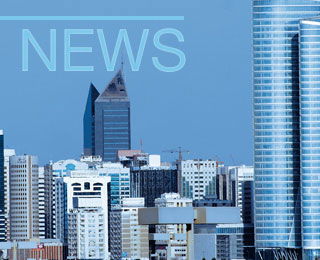Vicat reported a 12.5 per cent increase in first-half sales to EUR1755m (US$1790.6m) in the January-June 2022 period when compared with the 1H21, when sales reached EUR1560m. At constant scope and exchange rates, the advance was 14.5 per cent.
However, in the 1H22 EBITDA declined by 10.4 per cent YoY (9.8 per cent at constant scope and exchange rates) to EUR269m from EUR300m in the 1H21. The EBITDA margin retreated to 15.3 per cent from 19.2 per cent in the year-ago period.
The company attributes the fall due to significant increases in energy costs and non-recurring industrial costs in the USA, France and India. Energy costs moved up 64.7 per cent compared with the 1H21. The increase was especially significant in Egypt, India, Brazil, France and Switzerland. Cost inflation, with a major impact in France, the Americas, Africa and India, was almost fully compensated by the overall rise in selling prices. EBITDA was also affected by several non-recurring industrial operations amounting to EUR25m that held back performance in the period, including start-up of the Ragland plant's new kiln in the USA, exceptional maintenance operations of the Montalieu plant after two pandemic-blighted years and preparation for capacity increase at the Kalburgi Cement plant (debottlenecking investment).
Consolidated net income fell by 13.8 per cent (20 per cent at constant scope and exchange rates) to EUR88m from EUR102m between January-June 2021. The net profit margin contracted from 6.5 per cent in the 1H21 to five per cent in the 1H22. The group share in net income amounted to EUR78m, 16.8 per cent down on the previous year’s first half, when EUR94m was reported. At constant scope and exchange rates the drop was 22.7 per cent YoY.
Commenting on these results, Vicat’s Chairman and CEO, Guy Sidos, said: "The basis for comparison in the first six months was unfavourably high given the sales and profitability levels achieved in the same period of the previous year. In an environment characterised by strong energy cost inflation and non-recurring industrial costs in the US, France and India, major price increases were introduced across all the countries where we operate. For the time being, their progressive impact has almost fully compensated the effects of cost inflation with operating profitability again well above its pre-pandemic level (EUR229 million in the first half of 2019).
“The Group is adapting to this environment by diversifying its procurement sources, honing the energy efficiency of its manufacturing facilities and pursuing a pricing strategy tailored to each specific region in which it operates. The Group is also moving forward with its policy of lowering its greenhouse gas emissions by harnessing existing solutions and investing in technologies that will enable it to reach its 2030 and 2050 targets."
